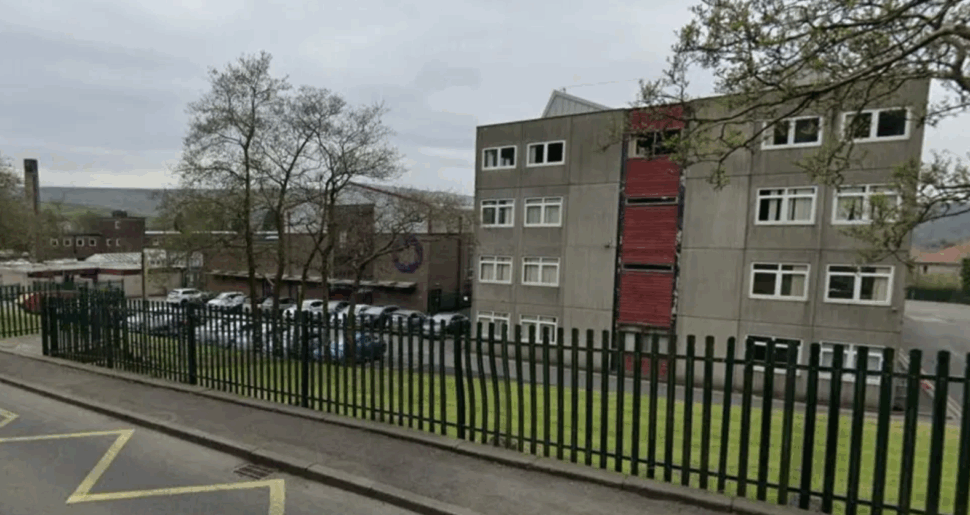An academy trust has said it has “no plans” for a “widespread” rollout of virtual teachers across its schools, following a backlash over plans to have some of its pupils taught maths from hundreds of miles away.
From September, Valley Leadership Academy in Bacup, Lancashire, will have its top set year 9 to 11 maths classes taught remotely by a teacher based in Devon.
Star Academies, which runs the school, said it had already trialled two successful virtual teacher (VT) pilots in English at Highfield Leadership Academy, Blackpool, and in Maths at Laisterdyke Leadership Academy, Bradford.
But the plans have prompted a furious backlash, with the National Education Union saying its members are prepared to strike over the “dystopian” scheme. The union has collected more than 500 signatures on a petition against the scheme at Valley Leadership.
Trust ‘did not anticipate’ concern
A Star spokesperson said the trust “did not anticipate” the pilots “would raise concern, particularly as the unions have long supported flexible arrangements, including remote working where appropriate”.
They added that teachers, including local representatives at the two pilot schools were “aware of the provision”, and that it had “no plans to roll out the model in a widespread way across the trust.
“Our priority remains securing high-quality, in-person teaching wherever possible.”
The trust said using a VT, who will always be supported by an in-person staff member, means students “in disadvantaged communities [who] have had to settle for inconsistent teaching or long-term supply cover in core subjects” will get “exceptional teachers”.
VTs are used “sparingly” where recruitment challenges persist, the trust said.
How will the Virtual Teacher work?
Star Academies plans to have the VT deliver lessons to the top-set classes in years 9 to 11 at Valley Leadership Academy. This will make up for around 5 per cent of the pupils’ total weekly lessons.
The VT is considered a full-time member of staff, on a reduced timetable, and will participate in things like parents’ evenings and departmental meetings.

A job advertisement shows the salary is either on the main or upper pay scale, along with a £3,000 allowance per annum.
Star said the position was paid more than a regular teacher because of the “specialist nature of the role”.
More funding has been made available for another adult to be in the room – either a qualified teacher, a graduate teacher apprentice or higher-level teaching apprentice.
“Live and interactive” sessions will see pupils use technology to interact with the teacher, including touch screens and electronic pens.
‘Overwhelmingly positive’
Star Academies ran two “very limited” pilots in six classes at Highfield Leadership and Laisterdyke Leadership Academies last year. It said feedback from those directly involved was “overwhelmingly positive”.
The trust is in the process of publishing an impact assessment of the pilot – but told Schools Week early evidence showed improved attendance, behaviour and attainment compared to their peers.

There was also “no evidence that pupils struggled to transition from digital learning to written exams” after working mainly with electronic devices, the trust added.
‘Short term gimmicks’
A petition launched by the NEU against the scheme has seen more than 500 signatures from individuals who claim to be members, parents and teachers at Star schools within a week of its launch.
The NEU said “substantial resources of the academy chain can and should be directed towards enhancing the attractiveness of working in education, rather than into short-term gimmicks or contentious and deeply divisive schemes such as this”.
Anonymous petition comments shared with Schools Week touch on a range of concerns, including the lack of in-person interaction, how well the model will work for children with SEND and the impact on teacher’s career progression.

One from a parent said “the pupils need to connect with their teacher and this can’t be done through a screen. Teaching isn’t just about getting results, it’s about understanding children and being there for them as a caregiver. They might as well be home schooled if this is the case.”
Another said it was “the start of watering down the quality of teaching” and that “on screen teaching does not support quality nor neurodivergence”.
A commenter who said they were a teacher currently at a school with a VT in place said they were “genuinely worried about the children” in the class, while another said the scheme “fundamentally undermines the role of the teacher”.
Another comment, also purportedly from a Star teacher, said the VT being paid more than a regular teacher “will affect the value, status and pay of staff” and “diminishes the pool of staff expertise at individual settings”.
‘No consultation’ on virtual teachers
Ian Watkinson, the branch secretary of NEU Lancashire, said members had shown support for strike action over the plan.
He claimed the pilots had been “dripped through without any consultation with the schools or the trust”, which he said the trust apologised for at an emergency meeting with the NEU and staff members last month.

“It doesn’t feel like the driver is trying to give the most disadvantaged children the best possible learning experience…the driver has got to be that there’s a teacher in the room of the highest quality, the children get that human interaction.
“There is a dystopian feel to this and just imagine if it spreads – one school, a few schools, one trust – it’s a scary prospect.”
The Star spokesperson said “The VT approach is not a blanket solution. It is used sparingly and only in cases where recruitment challenges persist despite extensive efforts, or where schools are supporting teachers who are continuing to develop their practice.”







Your thoughts